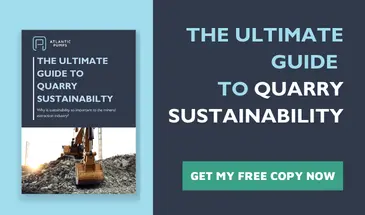Environment Day 2024; Restoring Our Land
Today is World Environment Day, with the theme this year of “Our land. Our future”
Land degradation has been a growing problem for decades, but the good news is that this generation are starting to take action, with community groups, charities, private companies, NGOs, and governments developing innovative solutions.
As Inger Andersen, CEO of the United Nations Environment Programme (UNEP) says “You give nature half the chance [and] it will bounce back”
As we reflect on the fragility of the world’s ecosystems, it’s inspiring to reflect on the power of rejuvenation. Much of this strength lies in the nature of the soil, sand and rock beneath our feet, as it captures, forms, and releases life-giving and life-enhancing minerals, nutrients, and water.
Where the landscape has been blighted by human short-sightedness and greed, we can work together to ‘plant the seeds’ of re-balancing and compensating for humanity’s effect on the ground.
Here are some examples of initiatives and changes we’re seeing across industry:
Mineral Extractive Industries (Quarrying and mining)
The construction materials used for our homes, community buildings and workplaces are >99% made of earth minerals - whether that’s mud, clay bricks, or concrete.
Modern aggregate processing is maximising the gain from each ton extracted and allows high-quality recycled material to be recovered from a building’s end-of-life.
New uses for yesteryear’s mining ‘waste’ (tailings) are often found, such as quartz that became valuable for glass, or the silica mica that computer chips rely on. More recent breakthroughs include the processing of old ‘waste’ to recover rare earth minerals – the critical metals needed for renewable energy battery storage, photovoltaic panels, and wind turbine production.
Engineered soils are being made from by-products and co-products of quarrying, enabling revegetation of soil-sparse ground. The University of Queensland found that ‘ore-sands’ made from rock tailings (discarded from metal ore mining) could increase the sustainability of sand. They describe ore-sand as having a huge potential for preserving the world’s exploitable sand for future generations.
Conscious of their impact, quarry operators spend a lot of effort and money in mitigating any adverse effects of their activities, maximising the opportunity to increase habitat and biodiversity gain during their extraction and post-extraction period.
Construction
2024 sees the beginning of the UK’s biodiversity net gain initiative, where builders are required to add 10% net gain to biodiversity on each new development. Nature-based approaches to climate adaptation include ‘sponge cities’ which use soil, plants, green-roofs and water bodies to reduce flooding.
Construction material manufacturers are developing carbon-neutral cement, a big challenge due to the energy required by the kilns, and the process emissions. Breedon are trialling alternative fuel sources, while Cemex and others are designing out carbon emissions from their processes.
Disposal of wet cement and concrete washdown water has long been an issue on building sites, with it sometimes being dumped into the ground. This results in high alkalinity and soil degradation. EnviroHub has developed a special concrete washout system that captures the solids and balances the pH level, enabling a circular use of water, ballast and sand.
Wastewater nutrients
Sewage and industrial effluent contains nutrients that are needed in depleted soil. Advanced anaerobic digestion (AAD) is enabling regional farmers to restore soil health with less reliance on imported or artificial fertilizer. Advances in wastewater technology and infrastructure mean that nutrient run-off and eutrophication (over-enrichment) is avoided, whilst heavy metals and micro-plastics are prevented from contaminating land.
Conclusion
Flooding, droughts, rising sea levels and population growth are combining to make protecting our soil all the more critical. There are many things we can do, big and small to make a difference.
At Atlantic Pumps, we are proud of our EnviroHub range of environmental monitoring and protection solutions, and reduction of energy demand through more efficient electric pumping systems.
Bring us your environmental challenges in water, slurry or sludge and let’s work on this together!


